
Any cat lovers know that cats, just like dogs, can have some interesting behaviors. Chin biting is definitely one of these. Truly, though, most chin bites can be more accurately described as mouthing as they rarely break the skin.
It can be alarming, though, if you are enjoying a snuggle session with your cat and they, seemingly out of the blue, start to nibble on your chin.
Although some cats may nibble on their owner's chins as a sign of play or affection, it can also sometimes be a sign that they are stressed or need space. Observing the subtleties of your cat's body language and behaviors can help you understand if it is something you need to be worrying about.
Petting-induced aggression is an interesting behavior in which a cat, who is seemingly enjoying his/her pets, suddenly lashes out with a swat or bite. Oftentimes, although it may seem like this swat or bite comes out of nowhere, there are actually subtle signs that your cat is reaching their petting limit that you might not have spotted.
Not all cats 'enjoy' being petted in the first place. The follicles in your cat's fur can be sensitive, and excessive petting can become irritating or even painful for them.
Most people know that purring and kneading (or 'making biscuits') are both signs of a happy, content cat. These aren't the only behaviors your cat will exhibit if they love you, though.
Cats will groom one another as a sign of affection. This is a behavior known as allogrooming and can include licking and biting. If your cat starts to nibble on your chin, especially if it is preceded with a few licks, it could just be an episode of allogrooming.
If you have been playing with your cat, they may start to nibble on your chin if they get a little too carried away. It may not be a sign of aggression, but it isn't a good idea to encourage this rough type of behavior if your cat is over-aroused.
For other cats, they may be feeling bored and this type of bitey play may be a way to stay entertained.
If your cat is feeling stressed or unwell, it may be more prone to showing signs of aggression, including biting. They may want you to give them more space if you are crowding them or they are in pain.
In rare cases, a cat may even have a condition known as hyperesthesia, where they are extremely sensitive to touch. Cats with hyperesthesia have follicles that are even more sensitive than normal. You may notice your cat's skin crawl as you pet them along their back if they are overly sensitive to the sensation of being pet.
If your cat is just being affectionate and the biting is gentle, then you may be happy to let them display their love for you in this way. If it is sore, aggressive, or just too much then there are a number of aspects to consider.
The biggest thing to remember when your cat bites your chin is to never punish them by yelling, swatting, etc. If your cat bites you from petting-induced aggression or stress this will only exacerbate the issue. If your cat bites you because they just love you so much they may get confused if they are then punished for their quirky way of showing their affection.
Learn to read your cat's body language and other signals that they might be giving you to tell you they don't want to be petted.
Unlike in dogs, a tail that is swishing quickly or harshly back and forth is not a sign of happiness in cats. It can actually be a sign of anger, frustration, and even overstimulation. Your cat may also go from having a nice, relaxed, slow-blink face to a tense face and may even turn their head to watch your hand as you pet them. These are all ways your cat is telling you, 'I would like you to stop petting me now'.
Providing toys for your cat to play with can allow them to more appropriately burn off all their excitement if they are prone to overstimulation. Puzzle feeders, whether homemade or purchased from a pet supply store, can provide your cat with plenty of mental stimulation and enrichment.
Some DIY options include encouraging your cat to forage kibble or treats out of a cup, ice cube tray, or folded over toilet paper tube. Wand and feather toys and paper bags with catnip inside give your cat an appropriate outlet for their predatory instincts.
Also, if they are biting because they are overstimulated, try not to instinctively jerk back. Your amped-up cat may see this sudden and quick movement as an invitation for more play!
If your cat is normally seeking out affection and now noticeably withdraws or shows signs of aggression when you try to pet them, this could be a sign that they are feeling unwell. Keep an eye out for any other signs of illness and seek advice from your vet if the problem persists.
If your cat is exhibiting signs of stress, they may be needing more help to make them feel comfortable in their own environment. Apart from giving them the space they need, think about whether there have been other changes in their environment or routine that could have contributed to this.
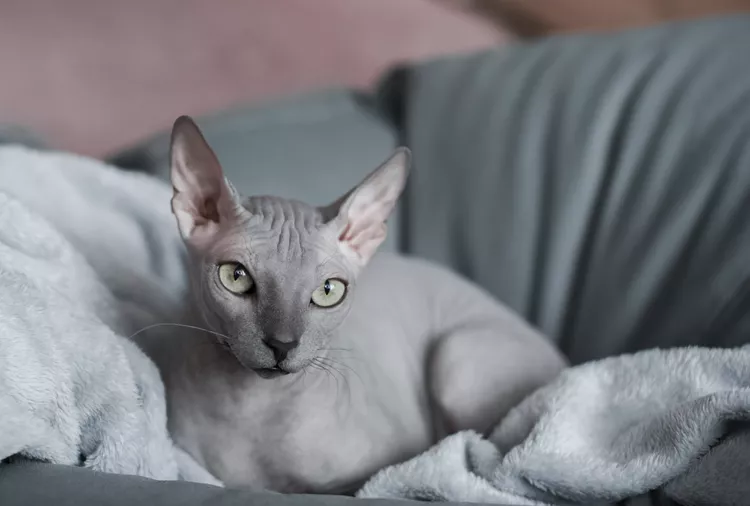
212 Hairless Cat Names For Your Beautifully Bald Feline
Discover the perfect name for your hairless cat with our list of over 200 creative and unique names. From quirky to classic, find a fitting choice for your beautifully bald feline companion.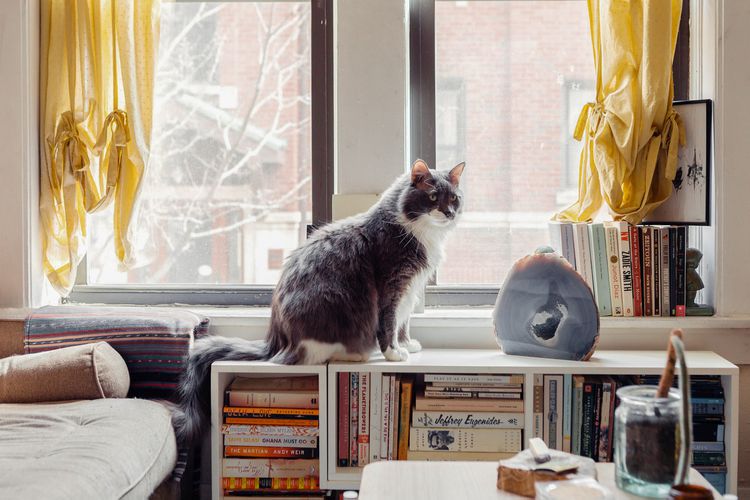
8 Things Your Cat Loves
Just like humans, cats can have a long list of things they like. Find out what cats love so you can keep your cat happy and healthy.
How to Tell If a Kitten is a Boy or a Girl
If you're wondering whether your new kitten is a boy or a girl, here are three ways to help determine the sex of your cat.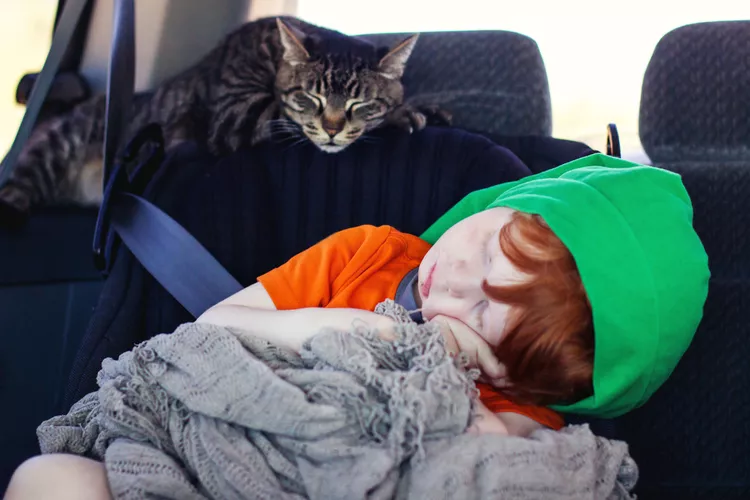
8 Tips to Help Cats Enjoy Car Travel
Cats are creatures of habit, and they hate to travel. Learn tips to prepare them for travel in the car, whether going to the vet or on vacation.
Common Causes of Mucus in Dog Poop
Seeing mucus in your dog's poop can be concerning to a dog owner. Here are common causes and treatment of mucus in a dog's stool.
Is Shrimp Bad For Dogs?
Shrimp can be a healthy, nutritional food for people but can dogs eat them, too? What are the main concerns with feeding shrimp to your dog?
Can Dogs Eat Grapes?
Are grapes safe for dogs? Grapes and raisins can cause serious toxicity in dogs. Find out what to do if your dog eats grapes.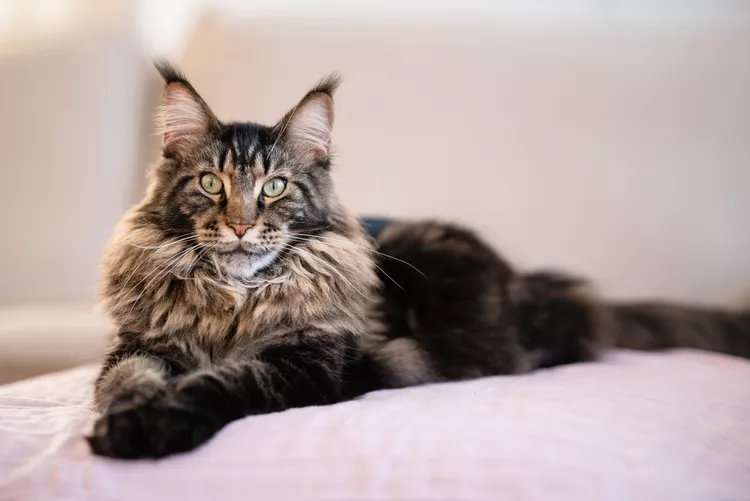
Maine Coon Cat: Breed Profile, Characteristics & Care
The Maine Coon cat is of the largest cat breeds in the world. These amiable, gentle cats make great companions. Learn about the Maine Coon cat breed's appearance, temperament, health, and care needs.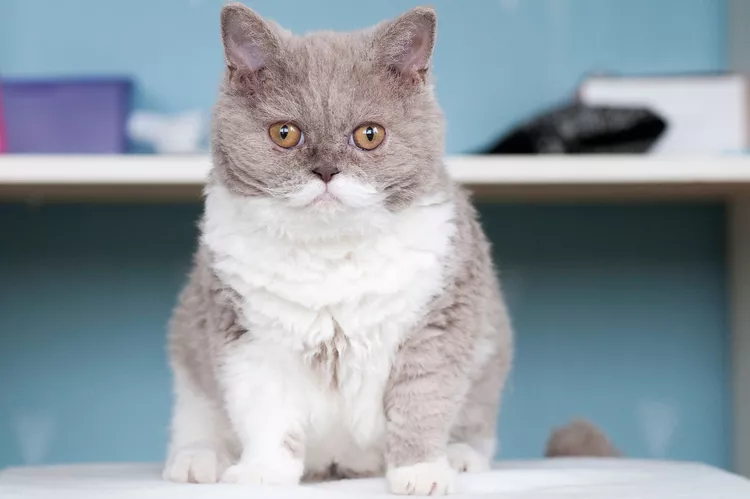
Selkirk Rex: Cat Breed Profile, Characteristics & Care
The Selkirk Rex is a charming cat with a tousled coat and a loving, laid-back personality. Learn about the Selkirk Rex breed.
How to Stop Your Cat From Chewing Electrical Cords
Cats are known to pounce and attack inanimate objects, like electrical cords. Learn how to prevent your cat from ambushing objects that may harm it.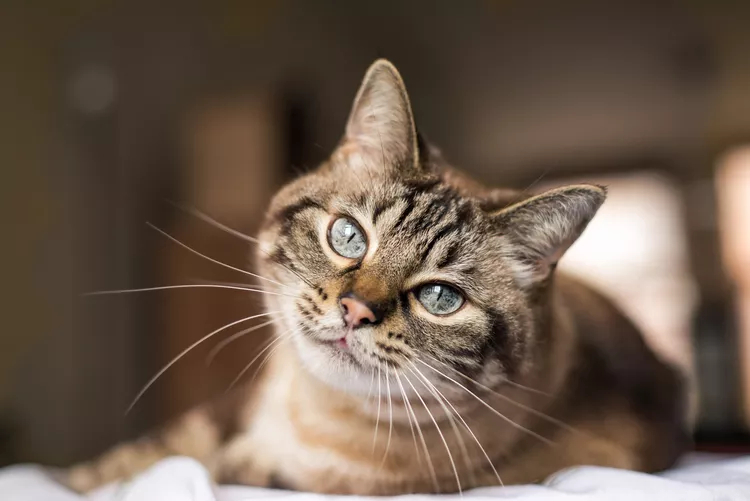
What Do Cats Think About?
Have you ever wondered what cats think about? A number of studies have explored cat behavior and feline cognition, but there's still more to learn.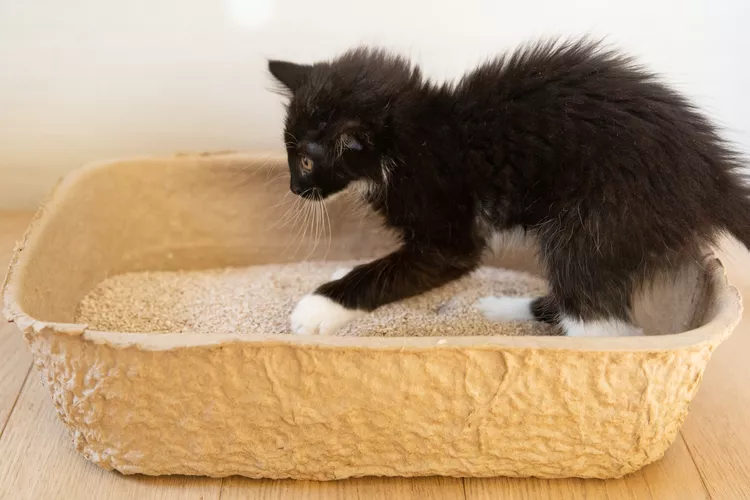
Training Your Kitten to Use the Litter Box
Bringing home a new kitten means they need to learn how to properly use a litter box. Discover how to successfully litter box train your kitten.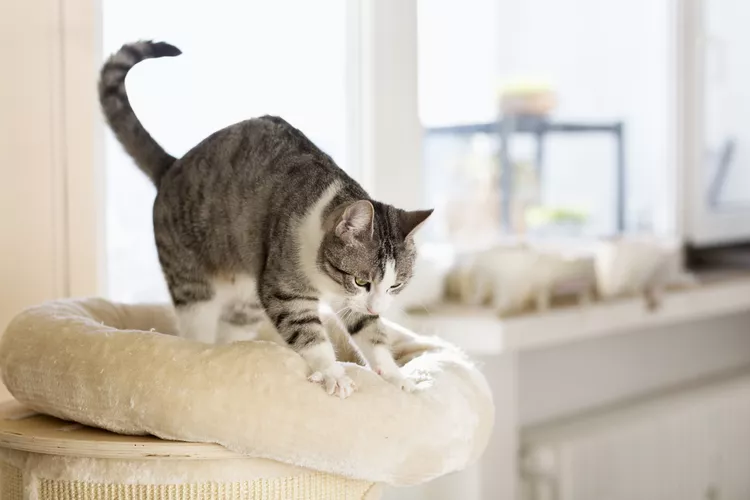
Why Do Cats Knead?
Kneading is a common behavior in cats of all ages. Learn why cats "make biscuits" and what it means for you, your cat, and all your blankets.
Dandie Dinmont Terrier: Dog Breed Characteristics & Care
Learn about the Dandie Dinmont Terrier, a silky dog breed with a signature puff of hair atop its head and a friendly, companionable personality.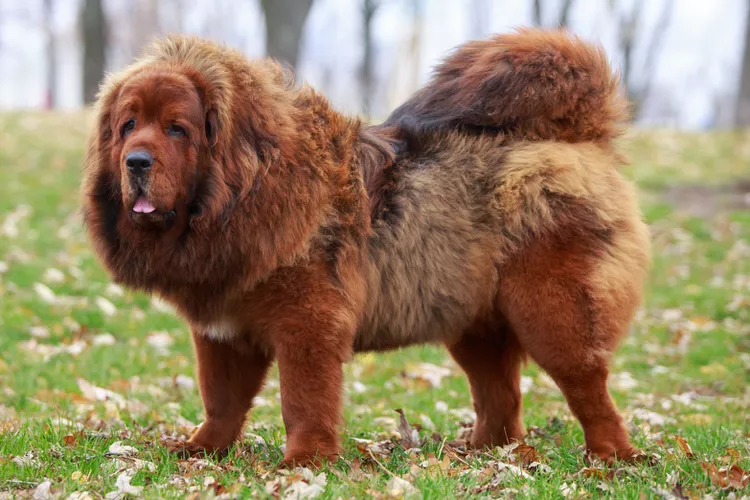
Tibetan Mastiff: Dog Breed Characteristics & Care
Learn about the Tibetan mastiff, an ancient guardian dog breed. This breed is known for their massive stature, flowing mane, and protective personality.
4 Reasons Why Your Dog Licks Their Butt
Butt-licking in dogs can be a part of normal grooming, but excessive butt-licking is not normal. Read about the most common reasons for this behavior.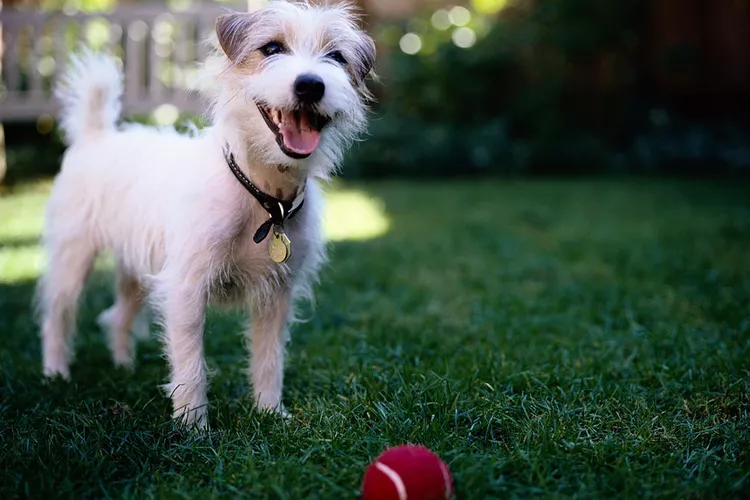
How to Teach Your Dog the "Leave It" Command
Training your dog the "leave it" command is a great way to instill self-control. Learn how to teach your dog to not pick things up from the ground.
How to Solve Your Dog's Fear of Car Rides
Is your dog scared of car rides? This fear of riding in cars is common. Learn why your dog is scared of car rides and how to help conquer this fear.
Can Dogs Get Depression? How to Help Your Sad Dog
Can dogs get depression? Learn about the signs of depression in dogs and find out how to help your sad dog.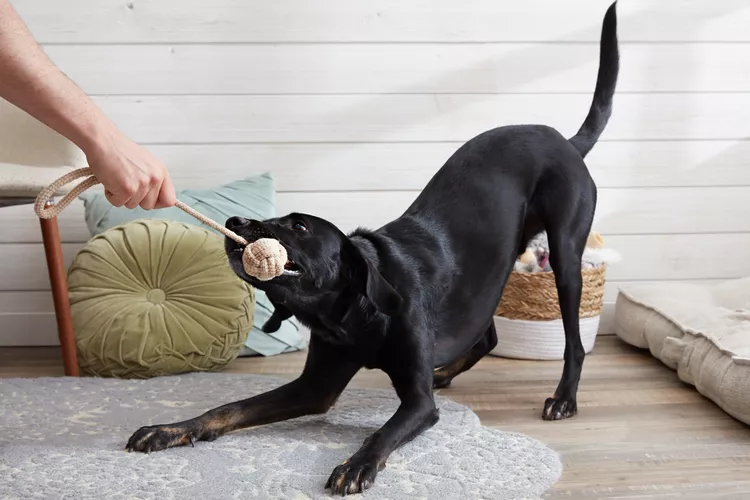
How to Play Tug of War With Your Dog
Many dogs love to play tug of war, and it's a healthy game that provides great exercise. Learn the best way to safely play tug of war with your dog.